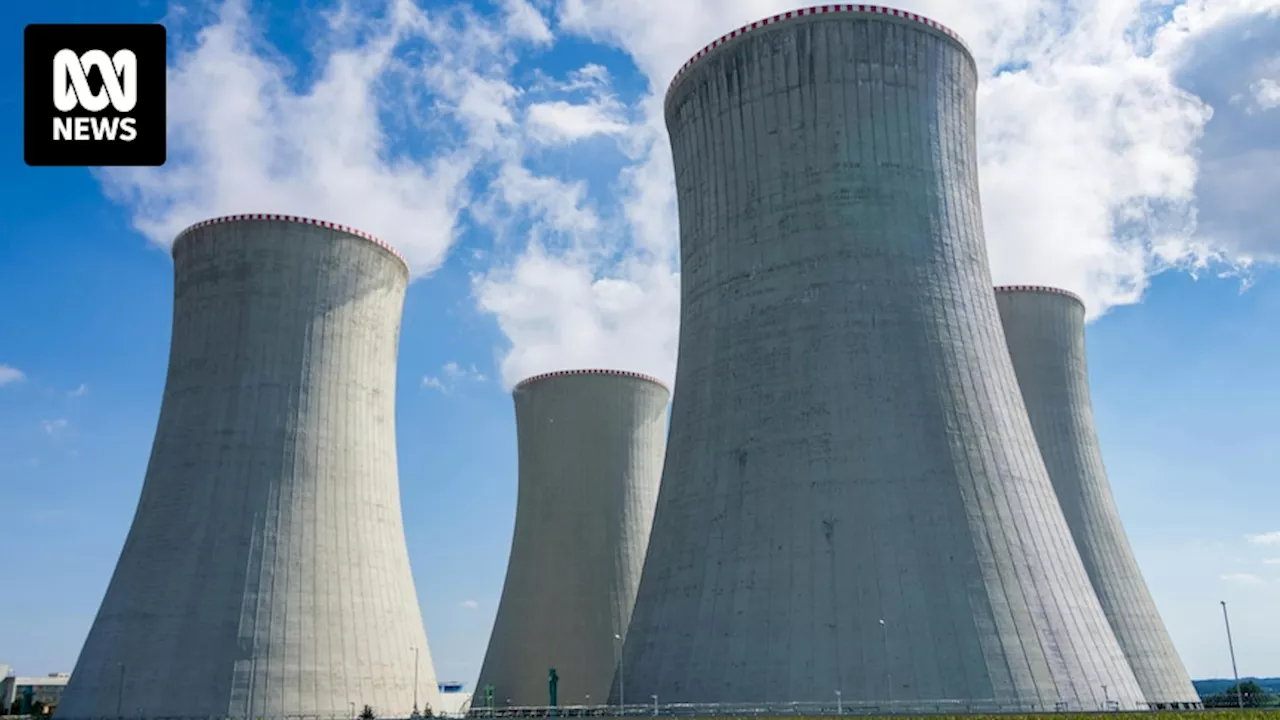Taxpayers could face a hefty bill for decommissioning any nuclear plants built under the Coalition's plan. The cost could reach $80 billion or more.
Decommissioning any plants built under the Coalition’s nuclear energy plan could cost more than $80 billion, and taxpayers would have to foot the bill. Opposition Leader Peter Dutton’s planned seven nuclear plants, with a likely 14 large-scale reactors, would be publicly owned, so taxpayers would be liable for clean-up costs from the radioactive sites and any accidents during operation. The Hinkley Point C nuclear plant, under construction in Britain, is that country’s first in two decades.
Last month, Britain’s National Audit Office found that the bill to clean up its old nuclear sites, which date back to the 1940s, would be $260 billion. About $200 billion of this is to decommission Britain’s original Sellafield site for weapons and energy generation, with contaminated buildings and radioactive waste. Another $48 billion is to decommission eight other nuclear sites, which now range from 36 to 48 years old, at a cost of $6 billion each. They are set to be handed back by a private operator to the government for decommissioning from 2028. University of NSW energy researcher Mark Diesendorf said international experience showed the cost of decommissioning a nuclear reactor could be roughly in line with its construction cost, which the Coalition has said would be about $9 billion a reactor in Australia.“For a rough approximation, you’re looking at probably the equivalent of the construction cost,” Diesendorf said. If the Coalition’s plan to build 14 nuclear reactors by the mid-2040s is realised, the decommissioning bill would be roughly $82 billion to $125 billion in today’s dollars.of the opposition’s plan that included decommissioning in an overall $331 billion bill to build 14 gigawatts of nuclear generation. However, it is unclear what price was attached to clean-up and whether it is plausible, given Frontier has declined to release the assumptions it use
NUCLEAR ENERGY DECOMMISSIONING COST TAXPAYERS ENVIRONMENT
Australia Latest News, Australia Headlines
Similar News:You can also read news stories similar to this one that we have collected from other news sources.
 Australia's Nuclear Plan Faces $80 Billion Decommissioning CostBuilding new nuclear plants in Australia could cost taxpayers up to $80 billion to decommission, according to experts. Australia's Opposition Leader, Peter Dutton, has proposed building seven nuclear plants with 14 large-scale reactors, but the cost of cleaning up these sites after their operational life is a significant concern.
Australia's Nuclear Plan Faces $80 Billion Decommissioning CostBuilding new nuclear plants in Australia could cost taxpayers up to $80 billion to decommission, according to experts. Australia's Opposition Leader, Peter Dutton, has proposed building seven nuclear plants with 14 large-scale reactors, but the cost of cleaning up these sites after their operational life is a significant concern.
Read more »
 Earthquake-prone Indonesia considers nuclear power plan as 29 possible plant sites revealedOne of Australia's closest neighbours proposes 29 locations for nuclear power plants across the archipelago, but critics say the plan is 'dangerous'.
Earthquake-prone Indonesia considers nuclear power plan as 29 possible plant sites revealedOne of Australia's closest neighbours proposes 29 locations for nuclear power plants across the archipelago, but critics say the plan is 'dangerous'.
Read more »
 Dutton's Nuclear Plan: Long Coal Reliance and Cost ConcernsAn expert raises concerns about Peter Dutton's plan to replace coal plants with nuclear power, highlighting the extended reliance on coal and potential cost overruns.
Dutton's Nuclear Plan: Long Coal Reliance and Cost ConcernsAn expert raises concerns about Peter Dutton's plan to replace coal plants with nuclear power, highlighting the extended reliance on coal and potential cost overruns.
Read more »
 Nuclear Fears Fuel Demand for Bomb SheltersThe increasing global threat of nuclear war is driving a surge in demand for bomb shelters, raising concerns among critics who argue that it creates a false sense of security.
Nuclear Fears Fuel Demand for Bomb SheltersThe increasing global threat of nuclear war is driving a surge in demand for bomb shelters, raising concerns among critics who argue that it creates a false sense of security.
Read more »
 Today Show Host Sam Armytage Questions Australia's Energy Warnings Amid Nuclear DebateSam Armytage expresses shock over energy usage warnings during heatwaves and questions Australia's reliance on traditional energy sources. The discussion on nuclear power, featuring Senator Matt Canavan and Heidi Murphy, highlights the challenges and potential of nuclear energy in Australia.
Today Show Host Sam Armytage Questions Australia's Energy Warnings Amid Nuclear DebateSam Armytage expresses shock over energy usage warnings during heatwaves and questions Australia's reliance on traditional energy sources. The discussion on nuclear power, featuring Senator Matt Canavan and Heidi Murphy, highlights the challenges and potential of nuclear energy in Australia.
Read more »
 Botanist Finds Crab-Eating Pitcher Plant in Malaysian JungleA Melbourne botanist discovered a new species of carnivorous pitcher plant in Malaysia that had consumed a crab. Dr. Alastair Robinson, a world expert on carnivorous plants, named the plant Nepenthes pongoides and noted its unique orange hair covering. He expressed amazement at this finding, as he had never encountered a species that had eaten a crab before.
Botanist Finds Crab-Eating Pitcher Plant in Malaysian JungleA Melbourne botanist discovered a new species of carnivorous pitcher plant in Malaysia that had consumed a crab. Dr. Alastair Robinson, a world expert on carnivorous plants, named the plant Nepenthes pongoides and noted its unique orange hair covering. He expressed amazement at this finding, as he had never encountered a species that had eaten a crab before.
Read more »
